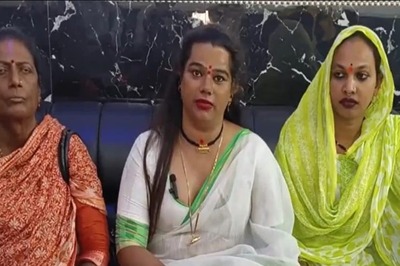
views
The Madras High Court recently rejected a plea challenging the appointment of a woman to the position of Panchayat Secretary.
The petitioner, one G Mayakannan, had argued that respondent, B Saranya, was not a resident of the Panchayat and had secured the position through forgery and misrepresentation. His primary contention was that one of the conditions for appointment was that the candidate should be a local resident, however, Saranya had shifted her residence to her husband’s place after her marriage, hence she could not be considered as an eligible candidate.
However, the court emphasised that a married woman should not be presumed to have forfeited her residential rights at her parents’ house due to marriage.
The bench of Justice RN Manjula said, “A married woman though ordinarily lives at her husband’s place, cannot be presumed to have disowned her residential rights at her parents’ house on account of her marriage. For the purpose of getting a separate ration card after her marriage, her name would have got deleted from her parents’ ration card and included in her husband’s ration card. With that alone it cannot be said that a married woman had severed her ties with her parents’ place and her residential status in respect of her parent’s house has come to a closure once and for all. The rules of marriage do not impose any such condition on a woman”.
The court added that in today’s world, men and women go to several places for the sake of education or occupation, but still consider their native place as their permanent residence.
“There is a notion that a married woman completely abandons her native place and assumes her husband’s place as her only place of residence. If a married woman chooses to live between her natal home and marital home on account of her employment, business or otherwise nothing can prevent her to exercise her option,” it stressed.
Further, the court underscored that to retain or waive the native address is at the will of a married woman or her family members in certain circumstances. The will of a woman coupled with the existence of a physical body like a house at her parent’s place, in which she opts to live either by exercising her right or by obtaining consent/permission, is itself sufficient to provide her with a residential certificate relating to that place, it said.
The court held that Saranya’s parents still resided in the Panchayat, and Saranya had the right to visit or stay with them at her convenience.
Furthermore, regarding the petitioner’s claim that Saranya was junior to him in the Employment Exchange registration roster, the court clarified that the terms of employment did not mandate the selection of the senior-most person sponsored by the Employment Exchange.
The court also considered Saranya’s submission of legal notices detailing ongoing marital discord. The court said that those facts were completely personal to her and she should not have driven to such compulsion of revealing these private facts about herself for the sake of present petition.
“A choice and will of a woman to exercise residential choice at her natal home should not be viewed through patriarchal prism in order to deny her the residential status there,” the bench observed.

















Comments
0 comment